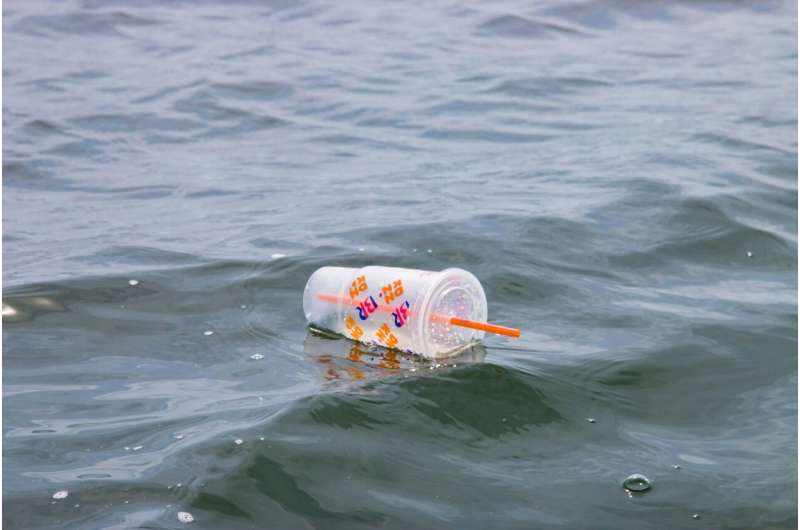Science
Health Experts Warn Plastic Pollution Costs $1.5 Trillion Annually

Plastic pollution poses a significant and escalating threat to global health, costing the world at least $1.5 trillion annually, according to a comprehensive review published in The Lancet on August 4, 2025. This report, authored by prominent health researchers and medical professionals, coincides with new negotiations in Geneva aimed at establishing the world’s first treaty on plastic pollution.
The review highlights that plastics contribute to a range of health issues from infancy through old age, leading to economic losses that exceed $1.5 trillion each year. The findings draw parallels between the harmful effects of plastic and other well-known environmental threats, such as air pollution and lead exposure. Experts have urged the nearly 180 nations represented in Geneva to reach a consensus on actionable policies to mitigate this pressing issue, following previous unsuccessful attempts.
Dr. Philip Landrigan, a leading researcher at Boston College, emphasized the urgent need for collective action, particularly to protect vulnerable populations like children. “It is incumbent on us to act in response,” he stated. “To those meeting in Geneva: please take up the challenge and the opportunity of finding the common ground that will enable meaningful and effective international cooperation in response to this global crisis.”
Microplastics and Their Health Impact
The report also raises concerns about microplastics, tiny plastic particles pervasive in the environment and human bodies. While the full extent of their health effects is still being studied, researchers warn about the potential risks posed by these ubiquitous materials. The production of plastic has surged dramatically, increasing from 2 million tonnes in 1950 to 475 million tonnes in 2022, with projections suggesting this number could triple by 2060. Alarmingly, less than 10% of all plastic produced is currently recycled.
Landrigan connected the plastic crisis to the broader climate crisis, noting that plastic is derived from fossil fuels. “There is no understating the magnitude of both the climate crisis and the plastic crisis,” he stated. “They are both causing disease, death, and disability today in tens of thousands of people, and these harms will become more severe in the years ahead as the planet continues to warm and plastic production continues to increase.”
The Lancet Countdown on Health and Plastics
In conjunction with the review, the report announced a new initiative to monitor the health implications of plastic pollution, part of an ongoing series known as The Lancet Countdown. This effort aims to provide clearer insights into how plastic impacts public health, further emphasizing the need for international action.
As discussions in Geneva unfold, the findings from this review underscore the critical importance of addressing plastic pollution as both a health and environmental crisis. With the stakes high, the world looks to its leaders for decisive action against this growing threat.
The comprehensive study serves as a call to arms for global cooperation, as the health of millions hangs in the balance.
-

 Lifestyle3 months ago
Lifestyle3 months agoLibraries Challenge Rising E-Book Costs Amid Growing Demand
-

 Sports3 months ago
Sports3 months agoTyreek Hill Responds to Tua Tagovailoa’s Comments on Team Dynamics
-

 Sports3 months ago
Sports3 months agoLiverpool Secures Agreement to Sign Young Striker Will Wright
-

 Lifestyle3 months ago
Lifestyle3 months agoSave Your Split Tomatoes: Expert Tips for Gardeners
-

 Lifestyle3 months ago
Lifestyle3 months agoPrincess Beatrice’s Daughter Athena Joins Siblings at London Parade
-

 World3 months ago
World3 months agoWinter Storms Lash New South Wales with Snow, Flood Risks
-

 Science3 months ago
Science3 months agoTrump Administration Moves to Repeal Key Climate Regulation
-

 Science2 months ago
Science2 months agoSan Francisco Hosts Unique Contest to Identify “Performative Males”
-

 Business3 months ago
Business3 months agoSoFi Technologies Shares Slip 2% Following Insider Stock Sale
-

 Science3 months ago
Science3 months agoNew Tool Reveals Link Between Horse Coat Condition and Parasites
-

 Sports3 months ago
Sports3 months agoElon Musk Sculpture Travels From Utah to Yosemite National Park
-

 Science3 months ago
Science3 months agoNew Study Confirms Humans Transported Stonehenge Bluestones









